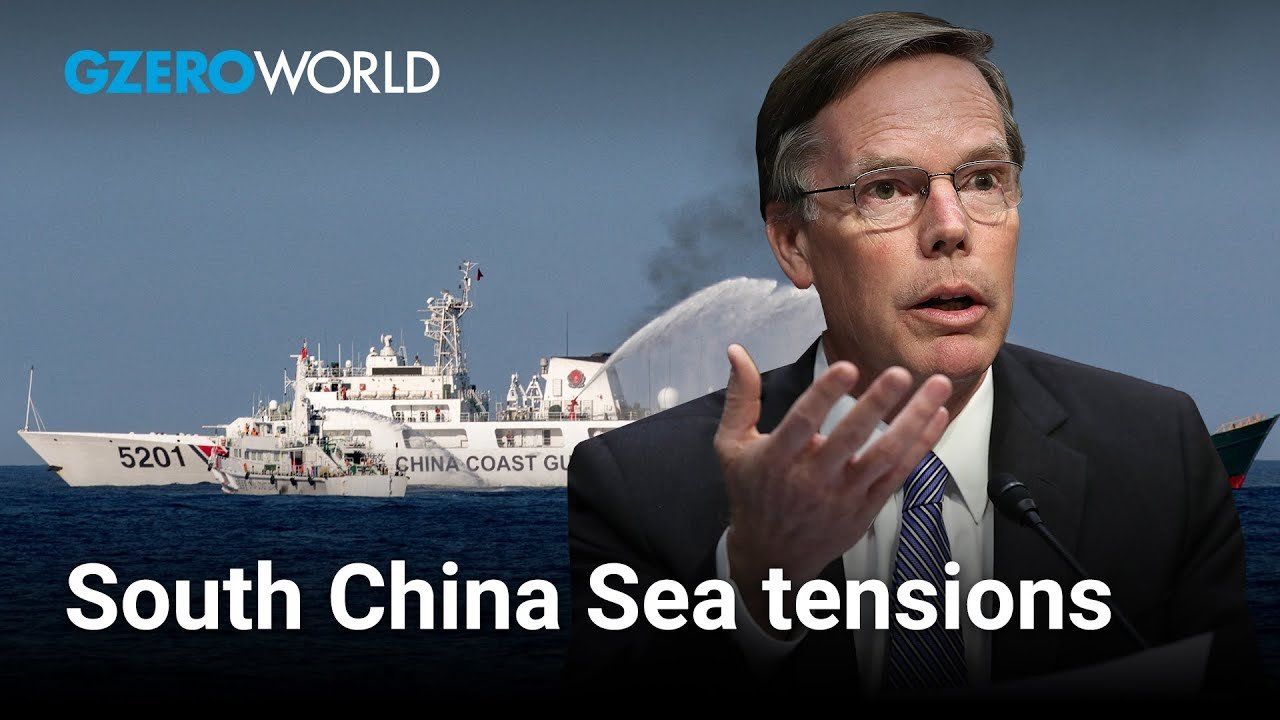GZERO World Clips
China shouldn’t “coerce or intimidate” the Philippines in the South China Sea, says US Ambassador

China shouldn’t “coerce or intimidate” the Philippines in the South China Sea | GZERO World

Tensions are rising between China and the Philippines over control of the South China Sea, which Beijing sees as its territory, and Manila as its exclusive economic zone. On GZERO World with Ian Bremmer, US Ambassador Nick Burns explained the US position that it is concerned about China’s aggression in the South China Sea, particularly at Second Thomas Shoal, a submerged reef where Manila deliberately beached a ship in 1999 and has used as a military outpost ever since.
“China should not seek to coerce or intimidate the government of the Philippines at Second Thomas Shoal,” Burns stresses, “The Philippines has an absolute right to resupply their forces.”
Burns emphasizes broad international support for the Philippines’ rights in the area, referencing the 1951 Mutual Defense Treaty between Washington and Manila. Tensions in the region have escalated sharply since Chinese and Philippine coast guard vessels collided in early March, injuring four Filipino crew members. Burns says China needs to act responsibly and commit to a peaceful resolution on the issue.People in support of former South Korean President Yoon Suk Yeol rally near Seoul Central District Court in Seoul on Feb. 19, 2026. The court sentenced him to life imprisonment the same day for leading an insurrection with his short-lived declaration of martial law in December 2024.
65: The age of former South Korean President Yoon Suk Yeol, who was sentenced to life in prison on Thursday after being found guilty of plotting an insurrection when he declared martial law in 2024.
In an era when geopolitics can feel overwhelming and remote, sometimes the best messengers are made of felt and foam.
The Hungarian election is off to the races, and nationalist Prime Minister Viktor Orbán is facing his most serious challenger in 16 years.
Does skepticism rule the day in politics? Public opinion data collected as part of the Munich Security Conference’s annual report found that large shares of respondents in G7 and several BRICS countries believed their governments’ policies would leave future generations worse off.